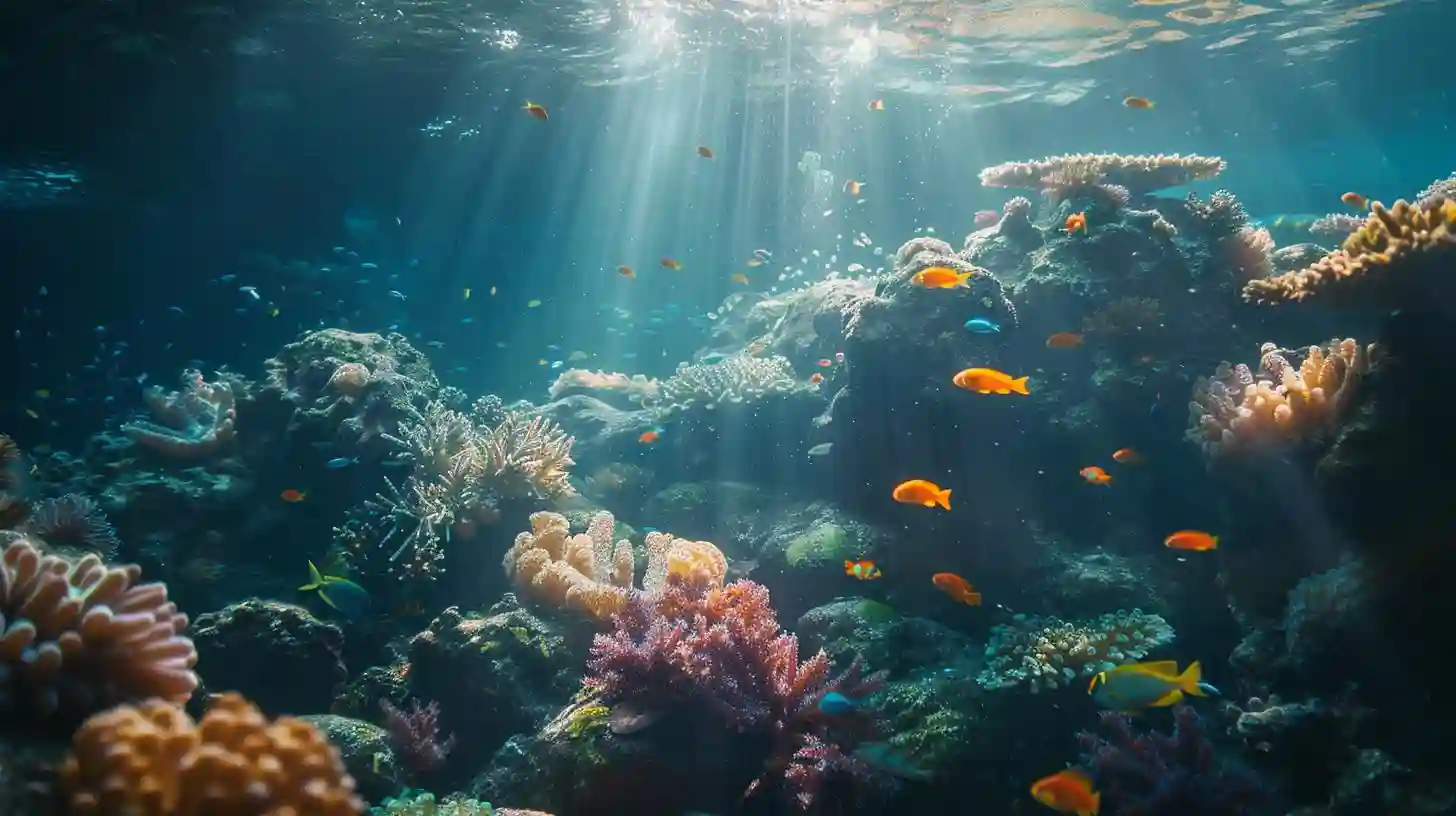
Underwater corals are an important part of marine ecosystems, providing habitat for a wide variety of marine species, including fish, invertebrates and other organisms. They are found in tropical and subtropical waters around the world, forming vast underwater forests that support biodiversity and help protect coastlines from erosion. Despite their importance, corals face increasing threats from human activities and climate change, which are causing widespread damage to these fragile ecosystems.
Corals are actually colonies of tiny animals called polyps that secrete calcium carbonate to form hard skeletons that provide structure and support for the colony. These skeletons accumulate over time to form the complex structures we call coral reefs. Corals rely on a symbiotic relationship with photosynthetic algae called zooxanthellae, which live in their tissues and provide them with energy through photosynthesis. In turn, the corals provide the algae with a protected environment to live.
Coral reefs are some of the most biologically diverse ecosystems on the planet, hosting an estimated 25% of all marine species despite occupying less than 1% of the ocean floor. They provide food and shelter for many commercially important fish species, as well as recreational opportunities for divers and snorkelers. Coral reefs also play a critical role in maintaining healthy oceans by filtering and recycling nutrients, sequestering carbon dioxide, and protecting coastal communities from the ravages of storms and erosion.
Unfortunately, coral reefs face a growing number of threats that threaten their survival. One of the biggest threats is climate change, which is causing ocean temperatures to rise and leading to more frequent and severe coral bleaching. When corals are stressed by high temperatures or other environmental factors, they shed zooxanthellae, lose color, and become vulnerable to disease and death. This can have devastating consequences for entire reef systems, as large areas of reefs can become extinct in a short period of time.
Other human activities, such as overfishing, pollution and coastal development, also contribute to the decline of coral reefs. Overfishing can upset the delicate balance of reef ecosystems, eliminating key species that help keep algae and coral predators at bay. Pollution from land-based sources such as agricultural runoff and sewage can leach harmful chemicals and nutrients into the water, which can damage corals and promote algae growth that can suffocate reefs. Coastal development can destroy coral habitat through dredging, sedimentation and pollution, as well as increasing the risk of physical damage from activities such as dragging anchors and grounding boats.
Despite these threats, there is still hope for the future of coral reefs. Efforts are being made around the world to conserve and restore these valuable ecosystems, including creating marine protected areas, developing sustainable fishing practices and reducing greenhouse gas emissions to slow the rate of climate change. Researchers are also working on innovative solutions to help corals adapt to changing environmental conditions, such as developing corals that are more resilient to heat stress and developing methods to restore damaged reefs.
Underwater corals are a vital part of marine ecosystems that provide valuable services to humans and other species. However, they face increasing threats from human activities and climate change that threaten their survival. It is important for us to take action now to protect and preserve these invaluable ecosystems for future generations. By working together to address the root causes of coral reef decline, we can help ensure these important habitats thrive for years to come.